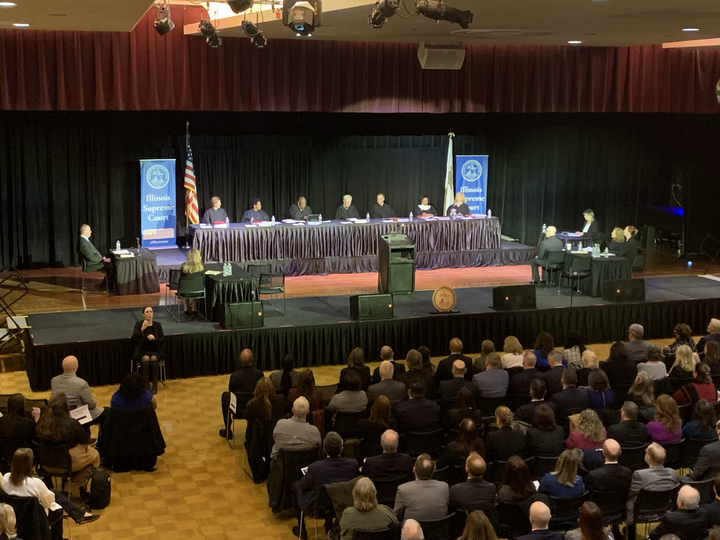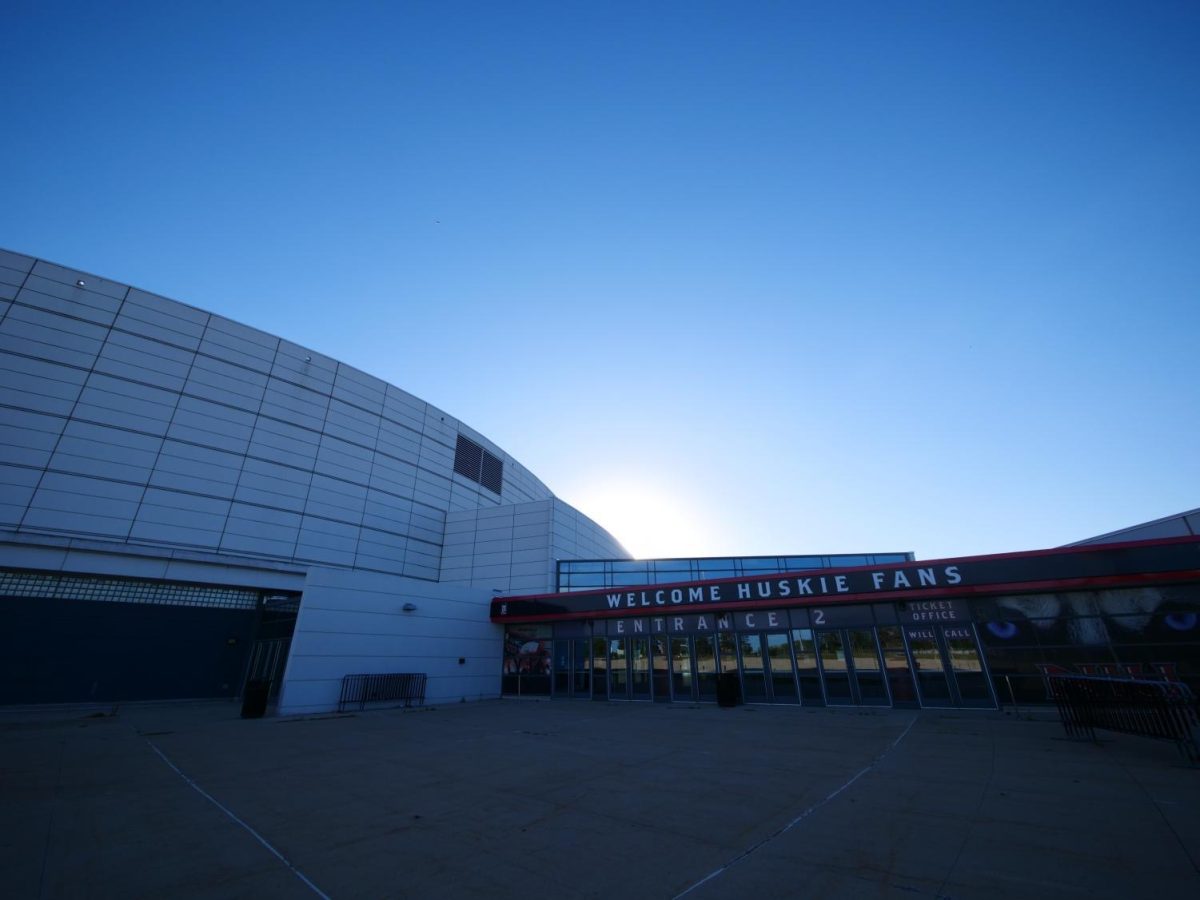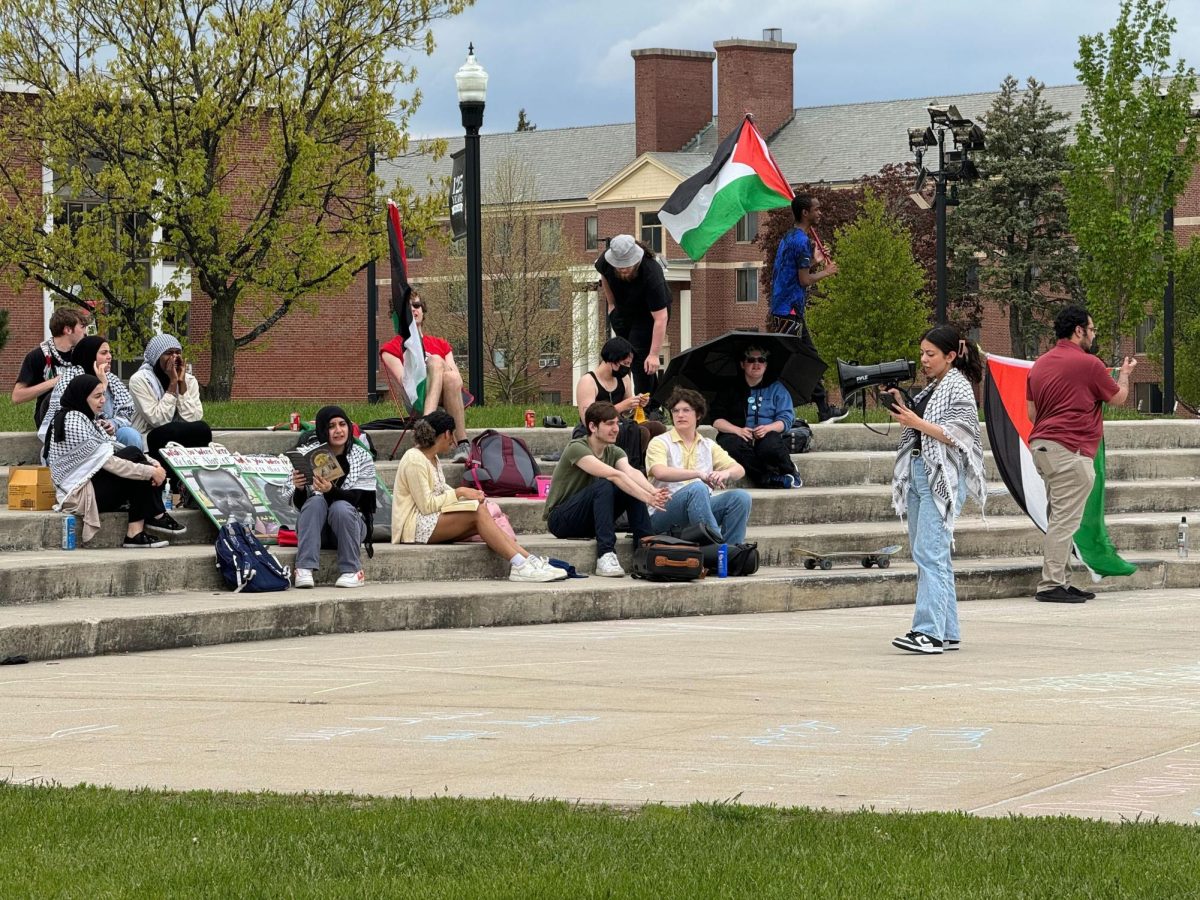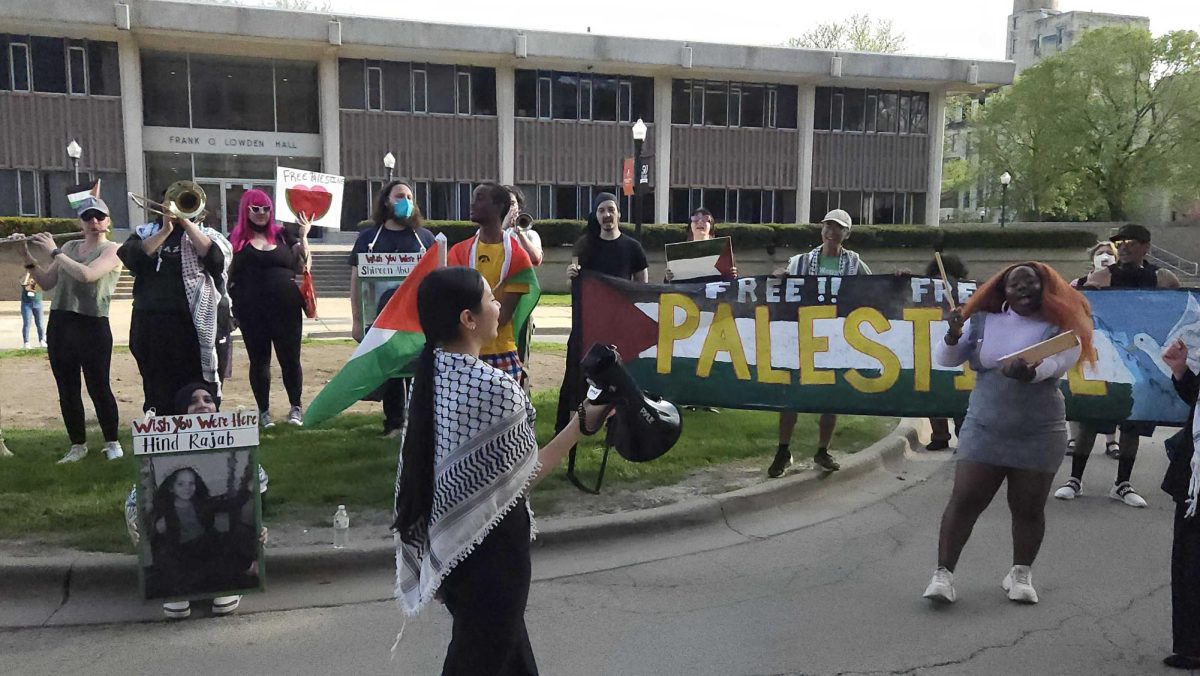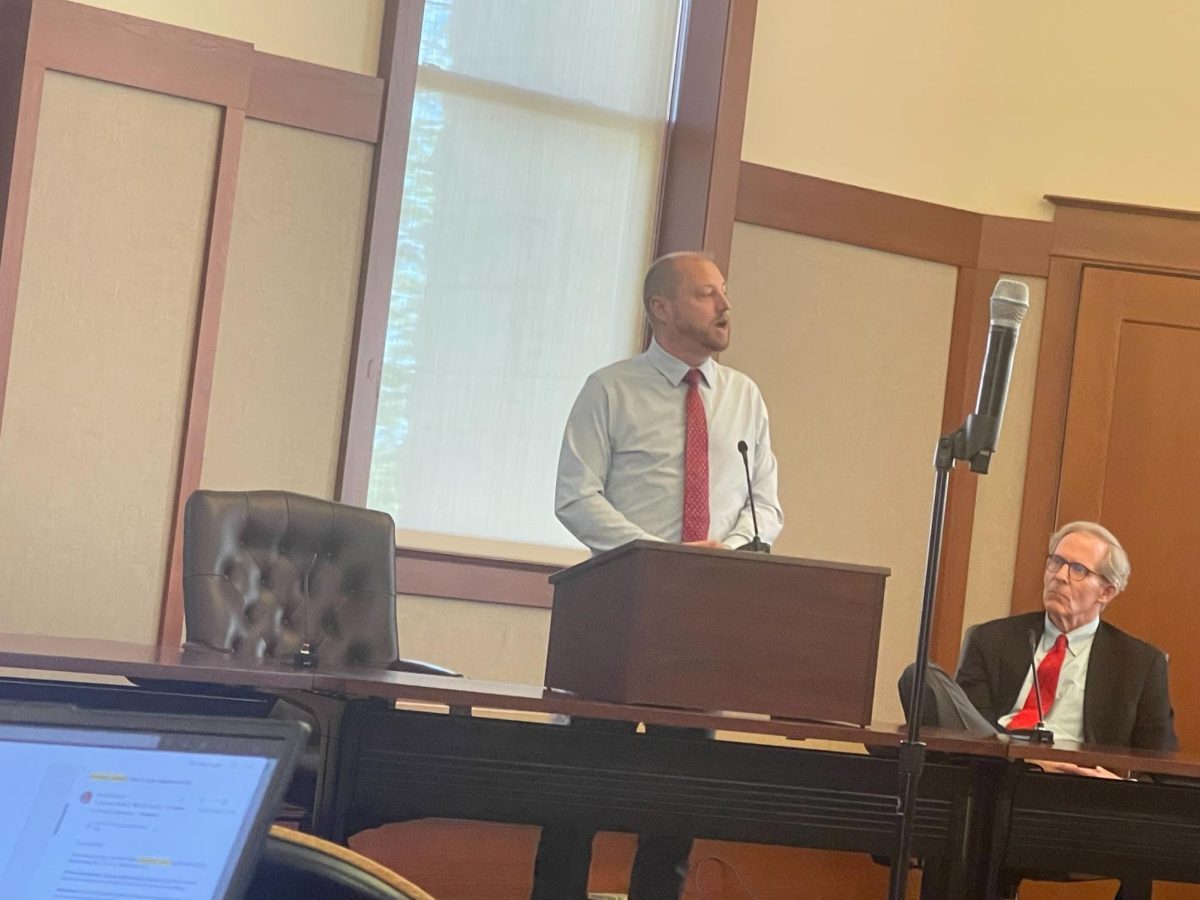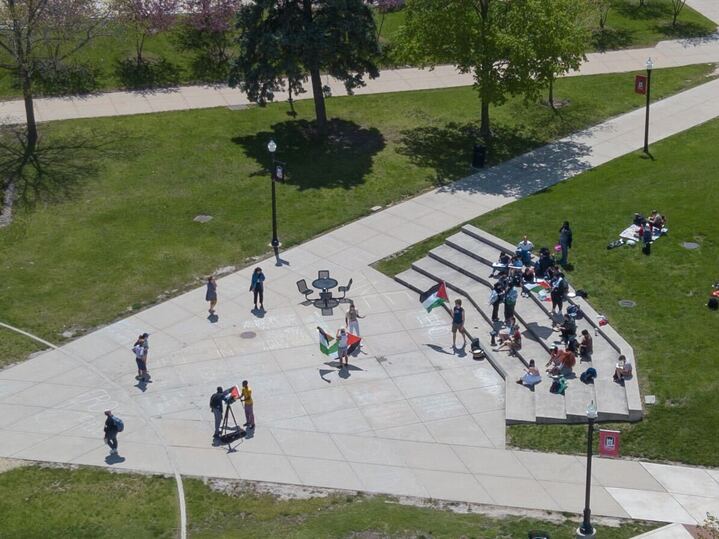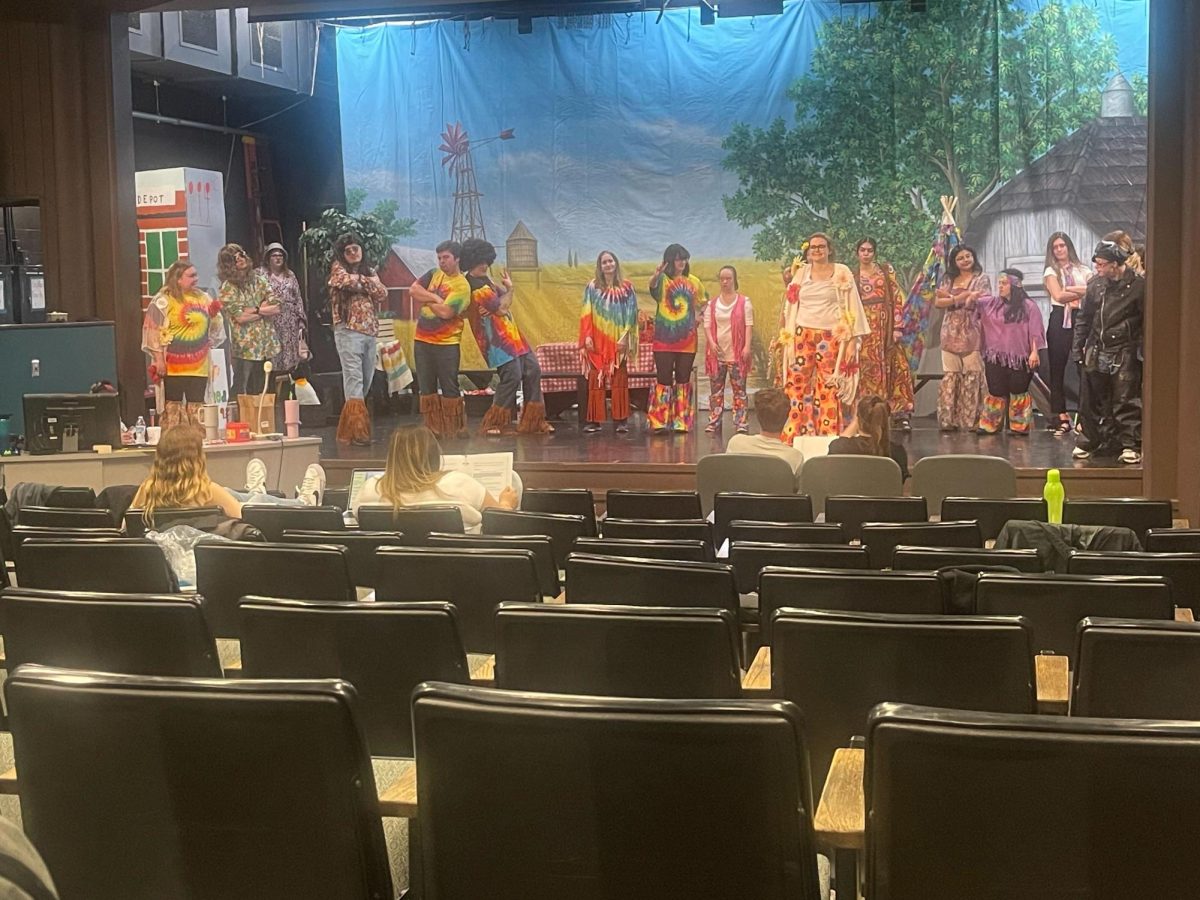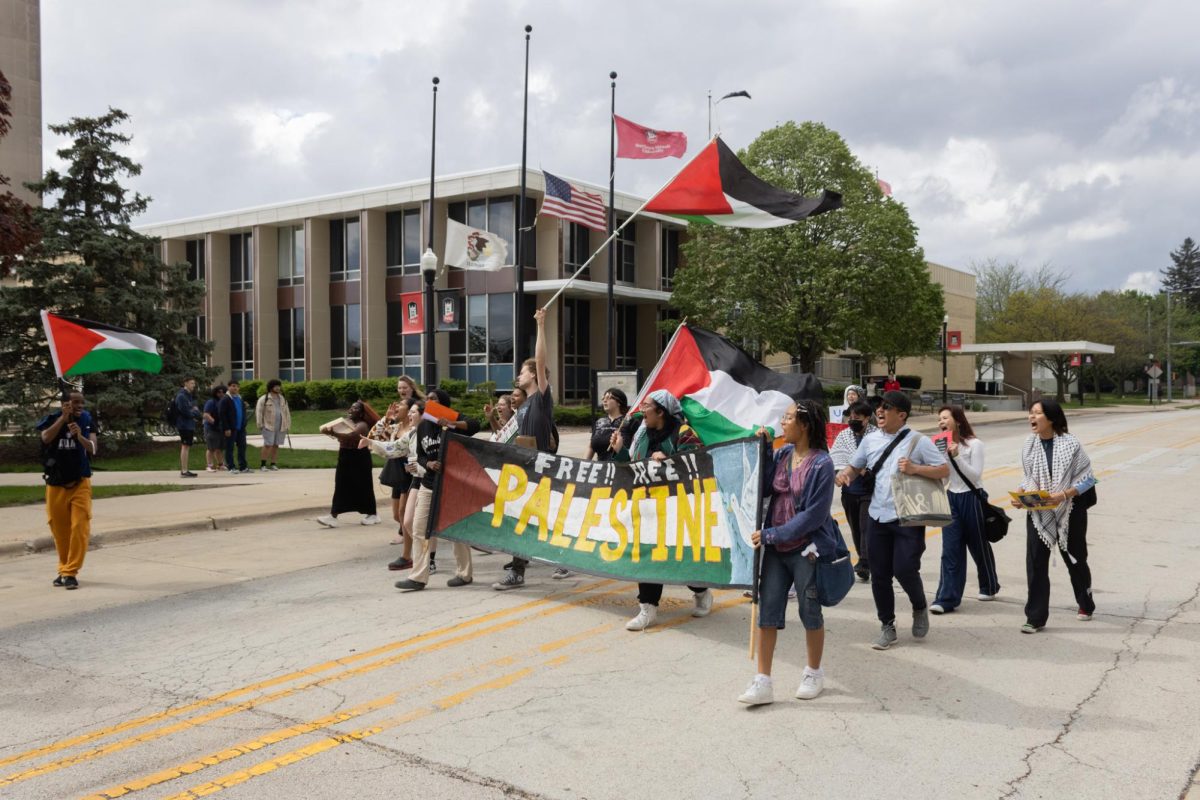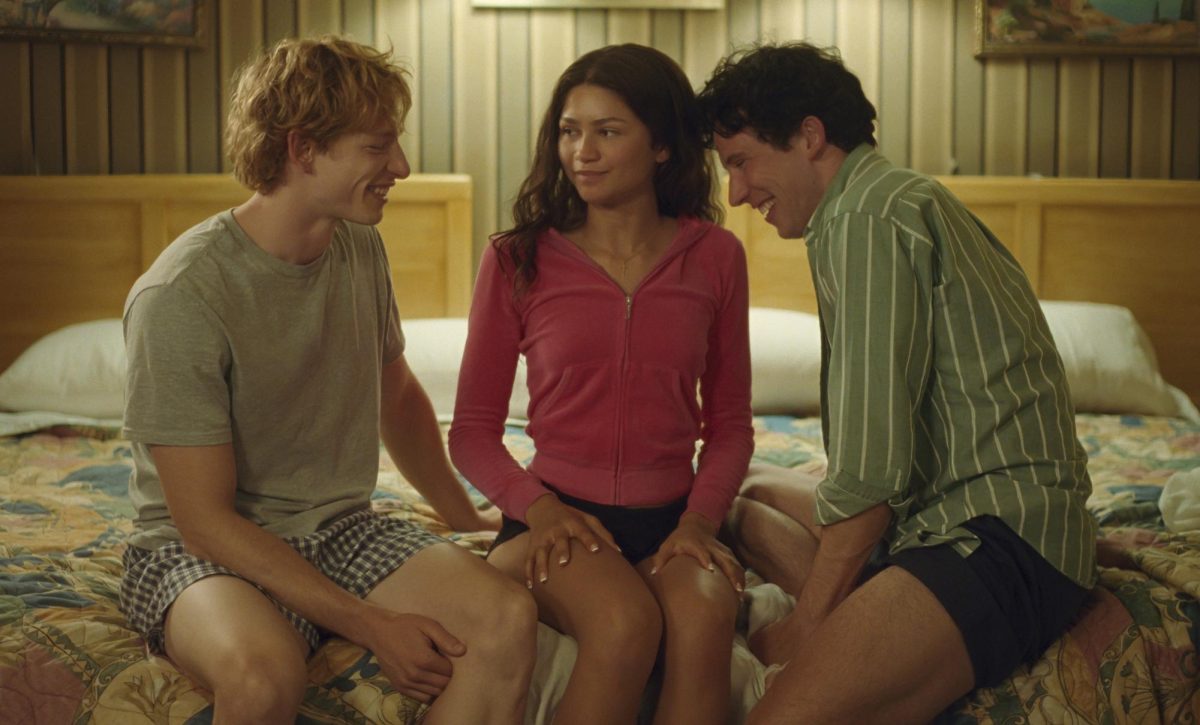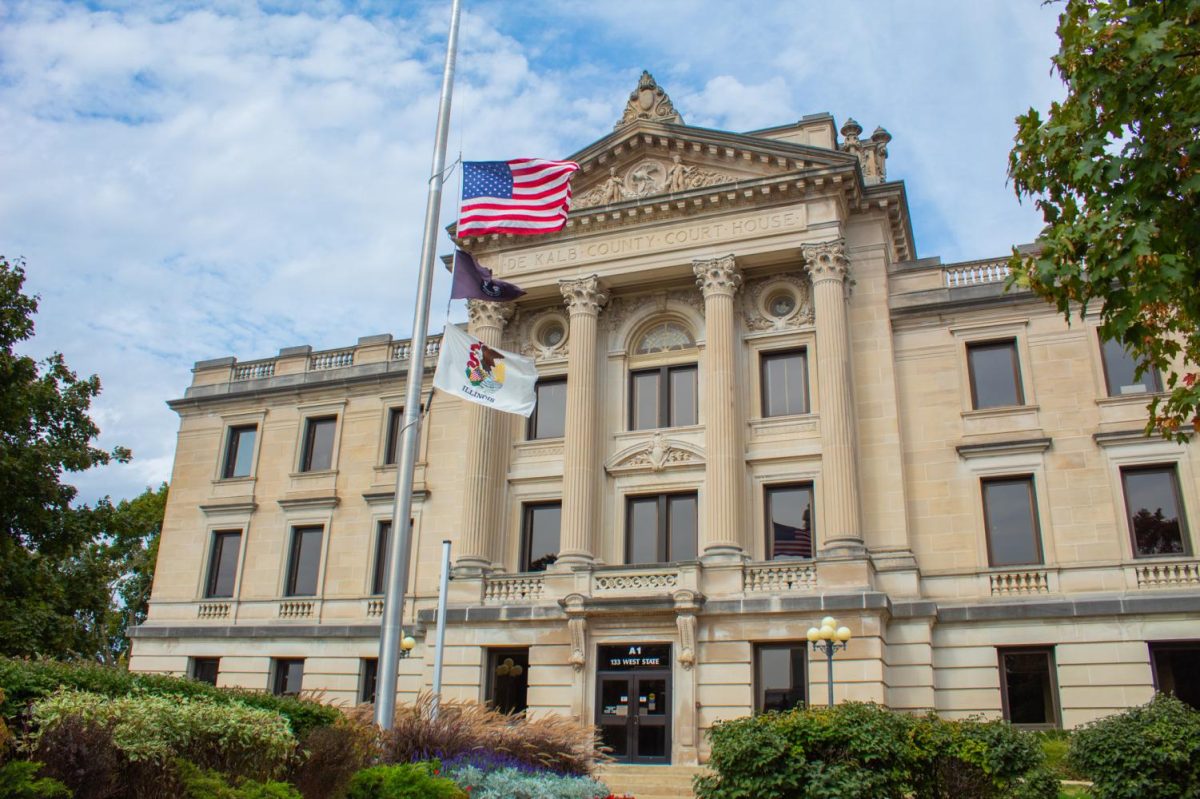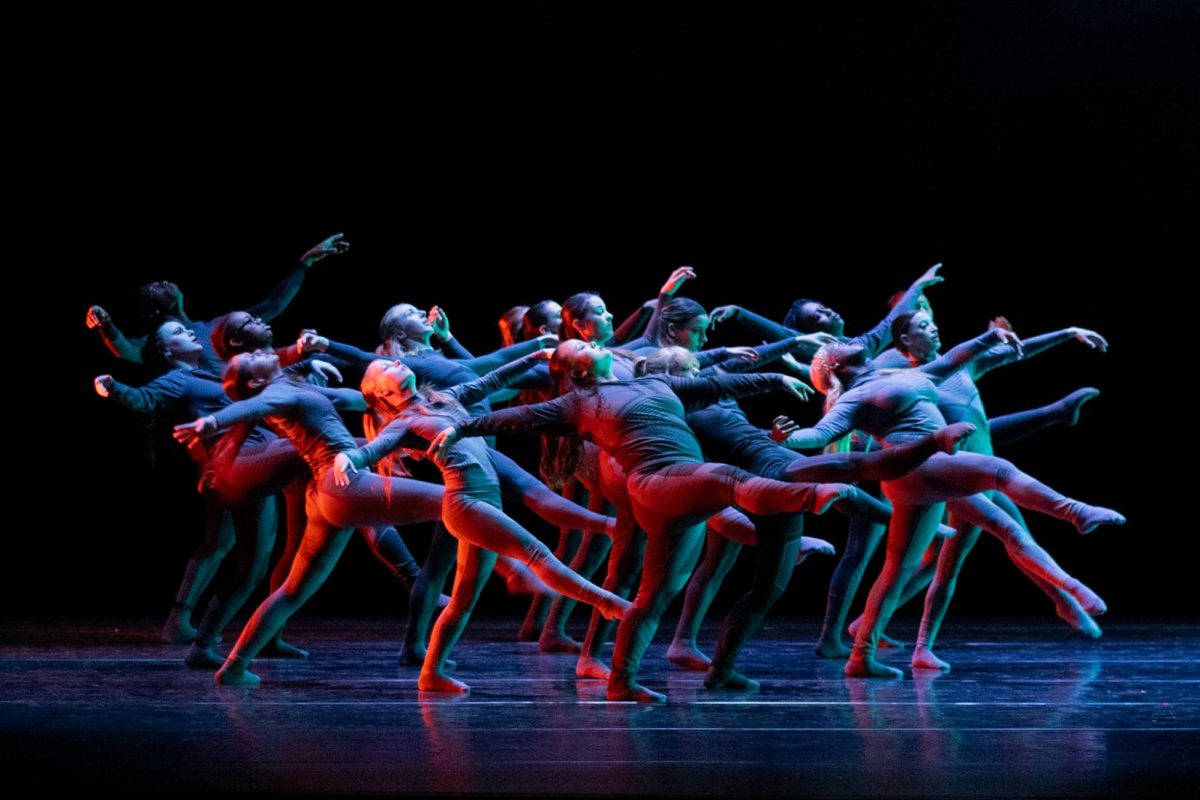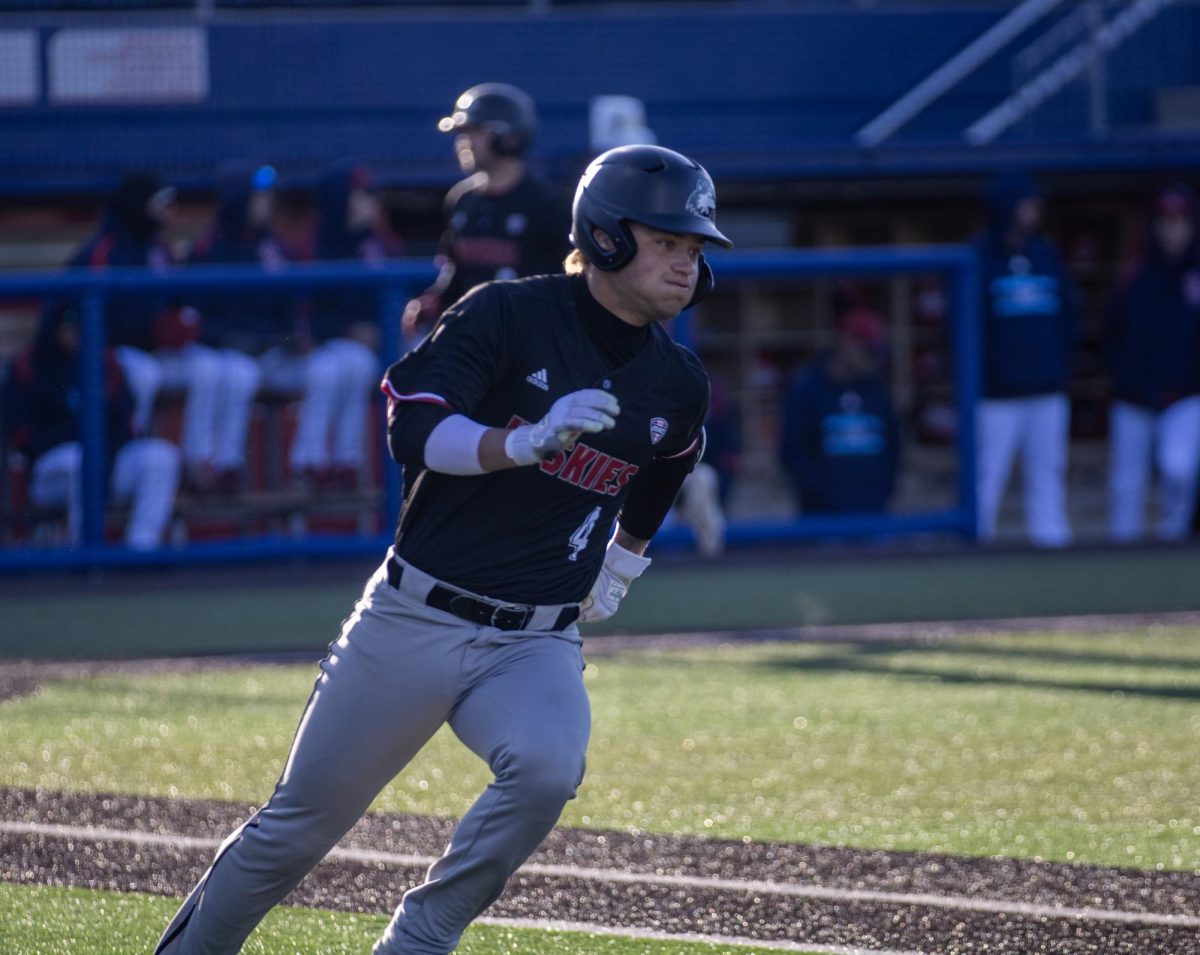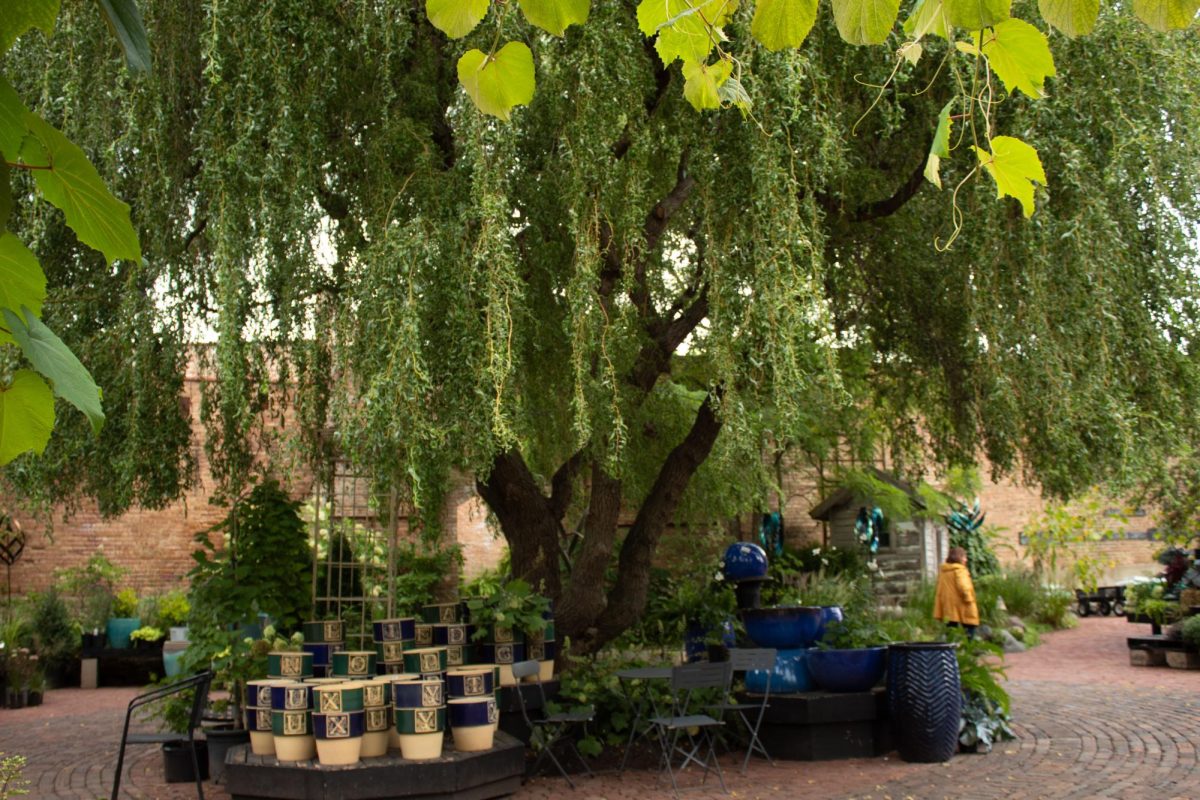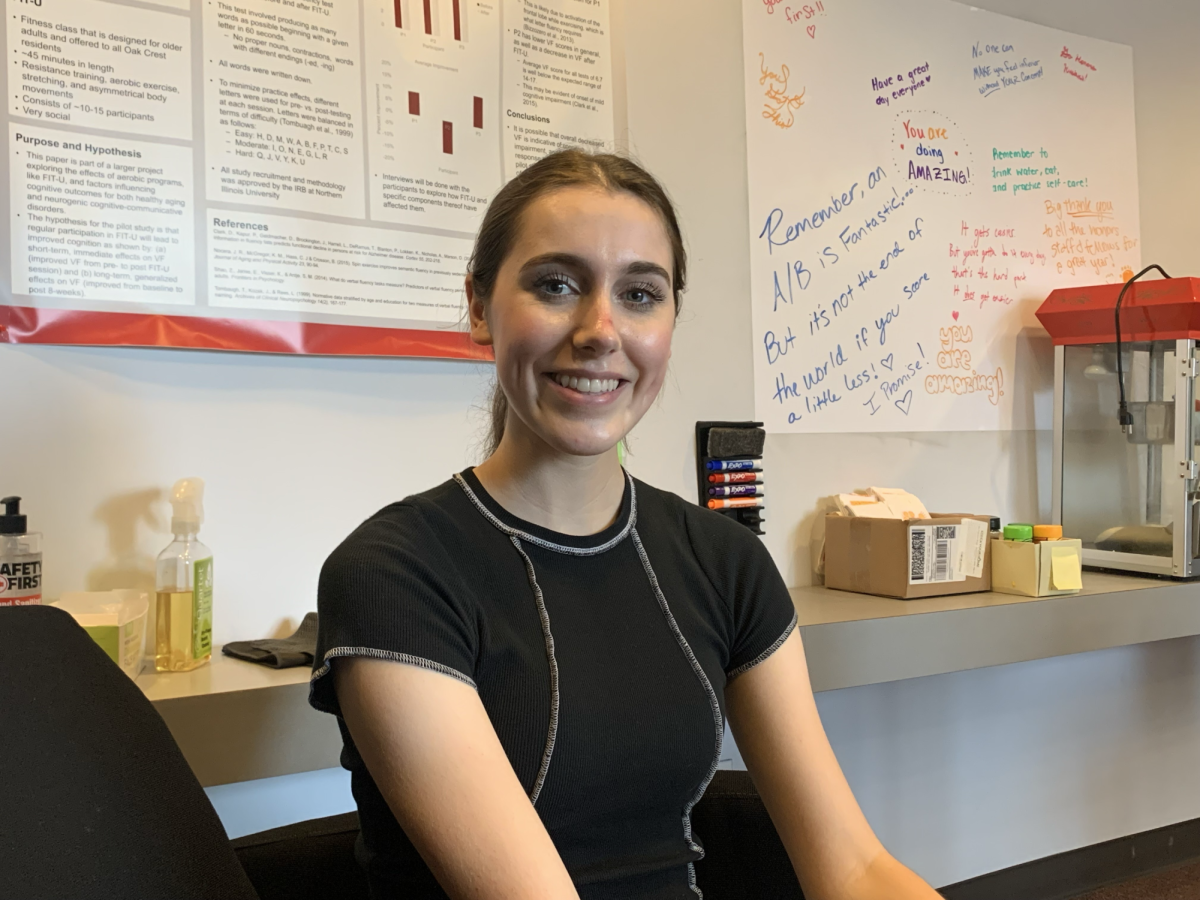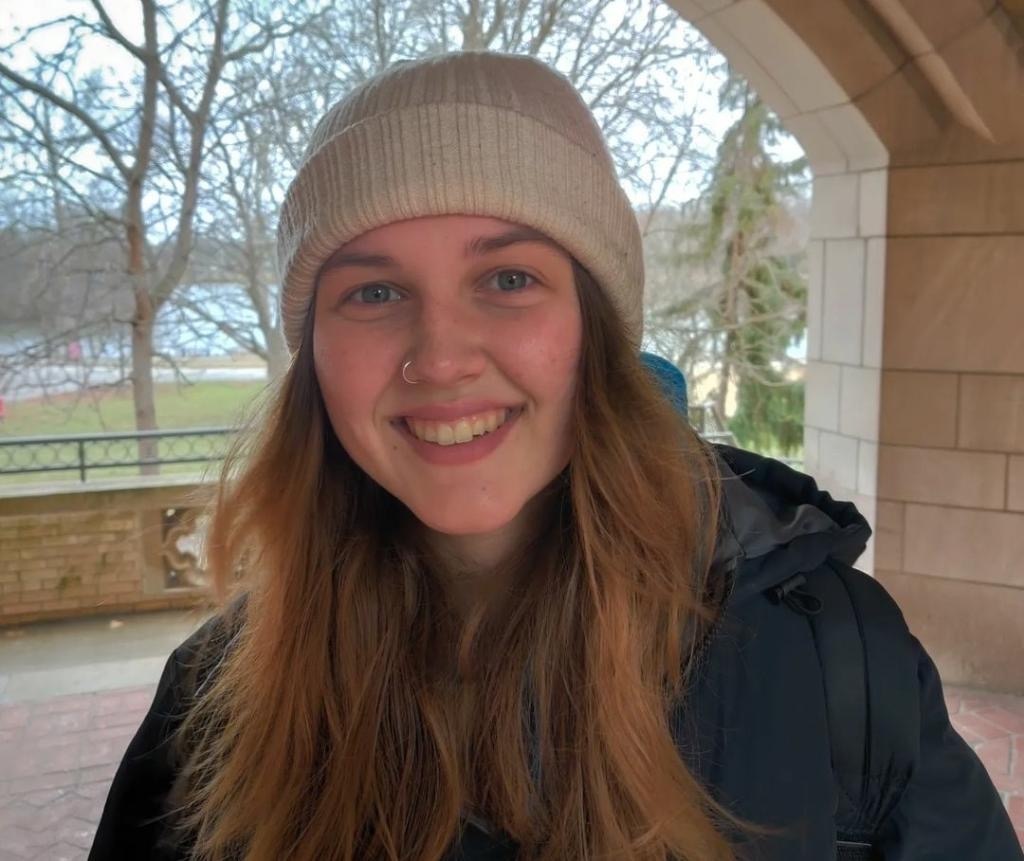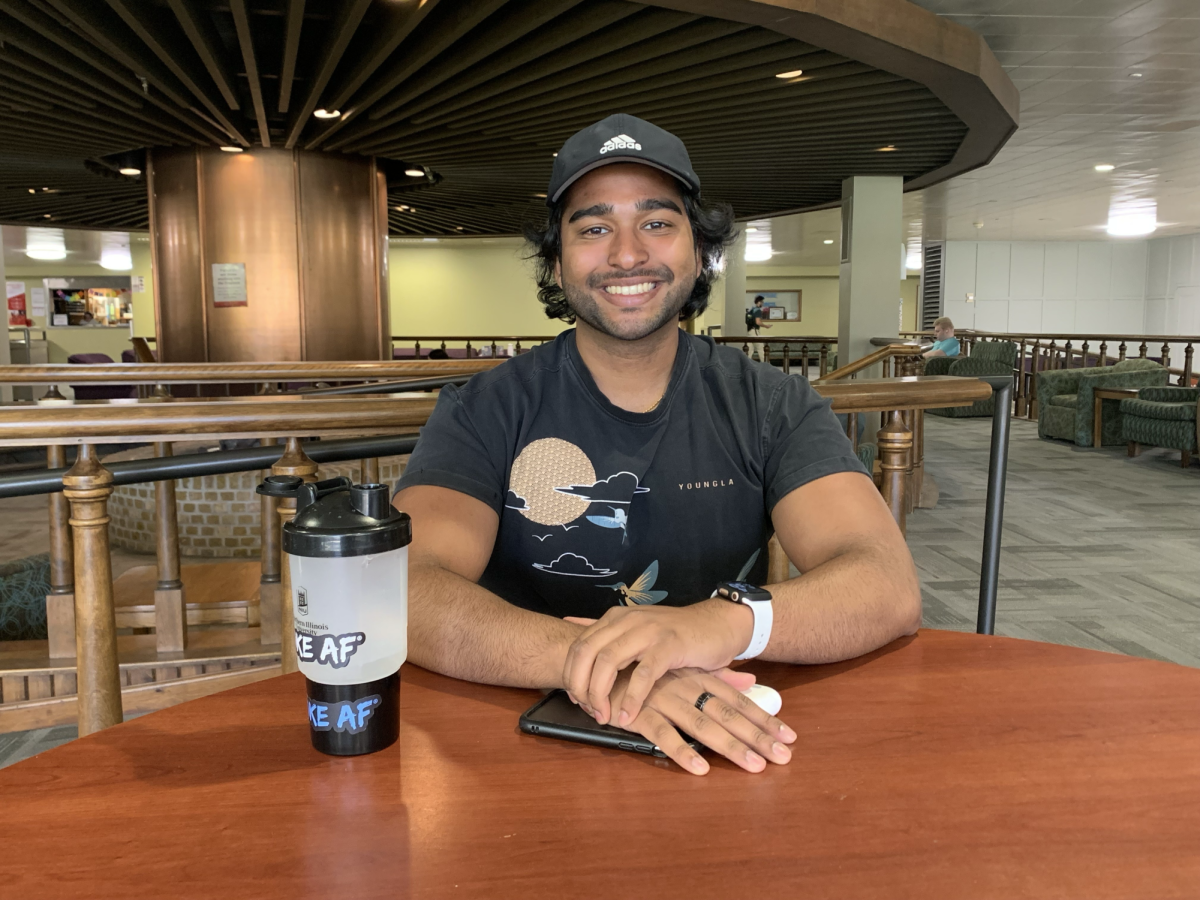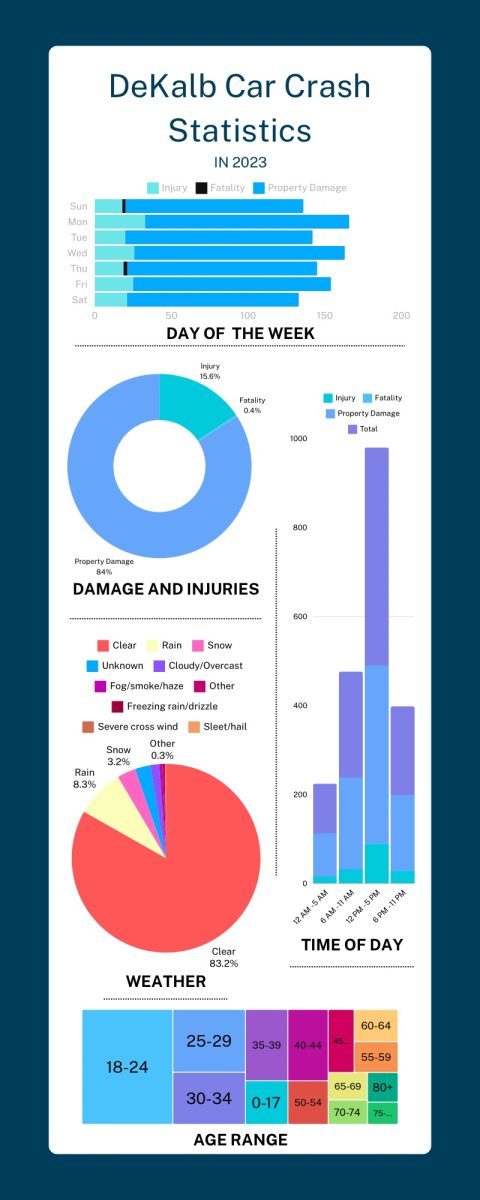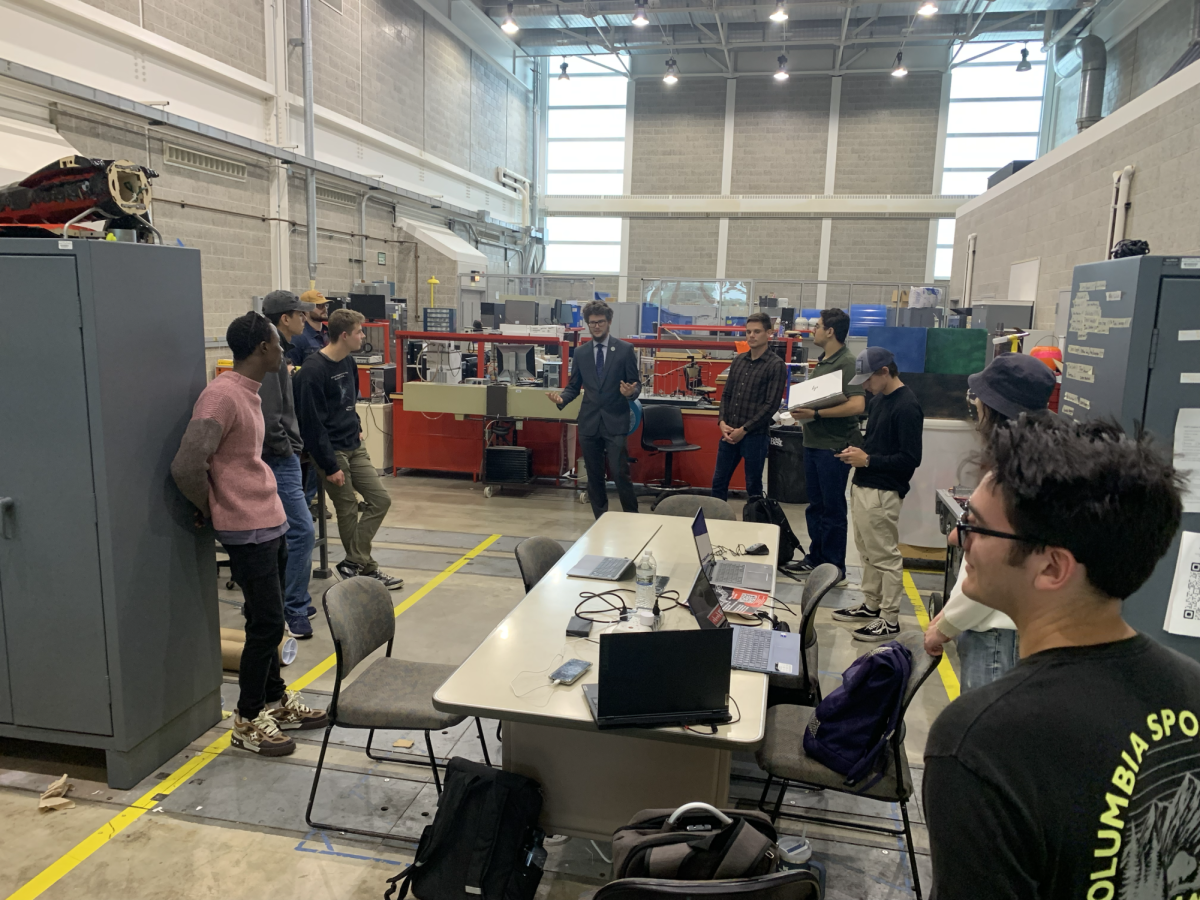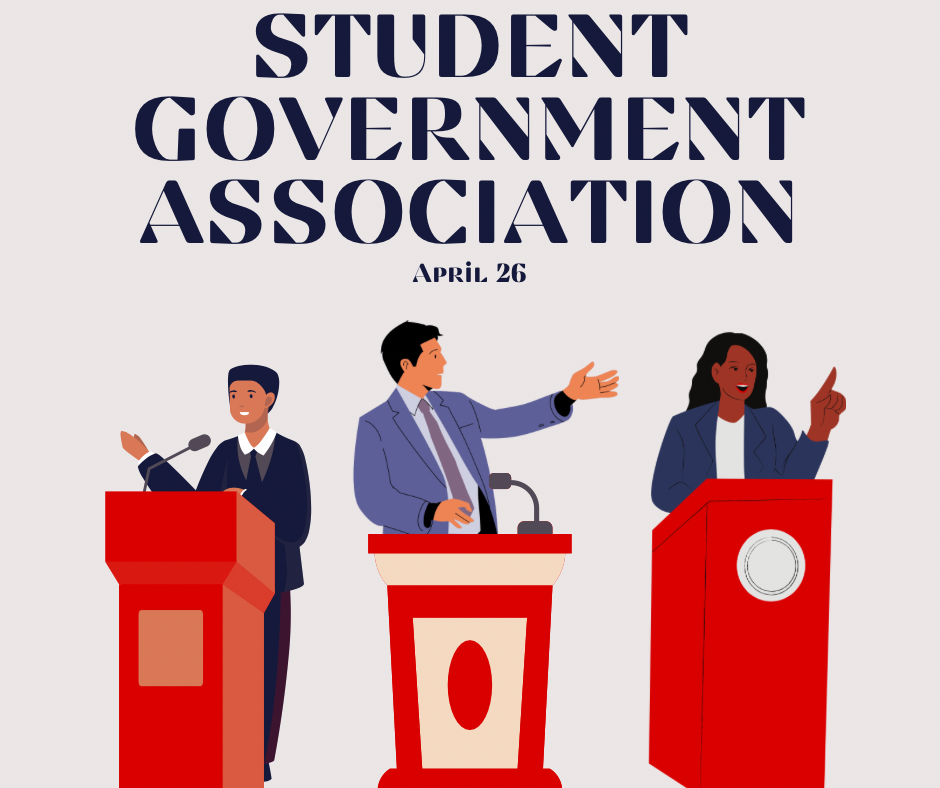DeKALB – The Illinois Supreme Court made a historic visit to NIU’s Duke Ellington Ballroom to hear oral arguments from two court cases in front of a crowd of around 750 interested students and faculty.
NIU hosted the Illinois Supreme Court’s “Riding the Circuit” event, which showcases oral arguments to a public audience to raise awareness of the judicial branch and the actions behind the highest level of the U.S. court system.
Guests were checked by security before entering, which included the NIU Police Department, the Illinois State Police and Supreme Court Marshals which oversaw the safety of the Supreme Court Justices.
NIU’s Chief of Police Darren Mitchell commended the department’s collaborative efforts which ensured the event’s security.
“There was significant resources brought here in order to make sure that this was secure and that the court could do its job in a safe manner, and we so far have made sure that that happened,” Mitchell said.
Laurie Elish-Piper, NIU interim executive vice president and provost, accompanied by Cassandra L. Hill, dean and professor of the College of Law, welcomed students and professors from NIU and neighboring schools and universities who came to witness the event.
“The Supreme Court’s practice of hearing oral arguments is a crucial aspect of the American legal system, offering a dynamic interaction between the court and those directly involved in the case,” Hill said. “This valuable opportunity serves as not only a major educational opportunity but also a critical component as a legal process that can inspire a deeper appreciation for the legal system.”
Professor of law, Marc Falkoff, followed by providing a brief understanding of the significance of the Supreme Court Justices’ jurisdiction and the difference between regular court proceedings and the decisions that would take place in the upcoming arguments.
“What we’re going to see are a pair of arguments,” Falkoff said. “What you’re not going to see is lawyers questioning witnesses, making arguments to a jury that one person should have done this or that. Instead, I’m going to listen to arguments about what legal principles are in theory already.”
The audience rose to greet the seven Supreme Court of Illinois Justices as the ballroom’s stage acted as a mock courtroom with the defendants and plaintiffs on their respective sides as the Justices sat lined up at a long table facing the crowd.
The audience heard the first argument, People v. Flournoy, involving the conviction of a first-degree murder and armed robbery. The defendant wanted to convince the court to introduce new discovered evidence which would demonstrate his innocence and show the state concealed and fabricated evidence which would supplement a claim of constitutional violation.
The Supreme Court needed to determine whether the newly discovered evidence could be used to support his innocence claim. The evidence had already been introduced, but now included two affidavits which clarified the statements convicting the defendant made at the time of the trial were false. Certain appellate court cases supported the new evidence, while other cases did not, which left the decision up to the Supreme Court.
Following the case, the arguments for the second case, Andrew W. Levenfeld & Associates, Ltd. v. O’ Brien were heard. Two law firms were suing their former clients to recover attorney fees, however the contingency fee the firms asked for did not specify how the fee would be divided. The lack of clarification resulted in a violation of the Illinois Rules of Professional Conduct, which governs the actions of all Illinois attorneys.
The trial court found the law firms were entitled to a reasonable fee – the price of the contingency fee minus the amount the clients paid for a new counsel – but the appellate courts refuted the decision, claiming the violation of the conduct rendered the contingency fee unenforceable.
The Justices questioned the attorneys on either side and responded to their statements and explanations, getting a better understanding of any nuances related to the cases. Based on their discussions, the Supreme Court Justices will hold conferences to debate their decisions in the future and eventually vote on the outcome.
After the court proceedings, four public guest attorneys went to the stage to answer questions from the audience.
NIU law students and students from neighboring schools compared the arguments’ proceedings with trials they had practiced and asked the attorneys advice for the future.
John Hersey highschooler, Carly Juliette Aimanza, 16, attended the event with her criminal and civil law class.
“It’s not like every day you can see this kind of stuff,” Aimanza said.
Tenise Johnson, a first-year law student, was surprised with the difference between regular trials and arguments solely under the Supreme Court’s jurisdiction.
“It’s different because with a jury you can get away with, I feel as though more of a moral argument, where the Justices know the law and they’re very strict to the point with you,” Johnson said.
Johnson said the event secured her confidence in NIU’s law program.
“It definitely made me feel like I’m in the right place,” Johnson said.


